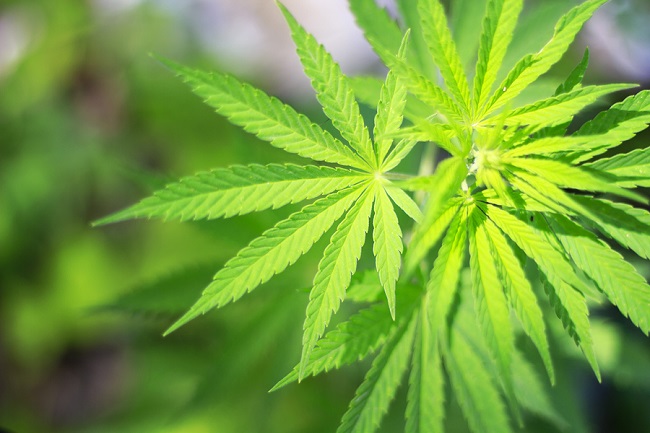- Make It Yourself Lavender Heart-Shaped Bath Bombs!
- 20 Things You Never Knew About “Down There”
- 12 Best Foods For Those Suffering From Arthritis Pain
- 12 Personal Hygiene Mistakes Almost Everyone Makes (Mom Never Told You About #4!)
- 15 Medicinal Plants And Herbs From The Cherokee People
- 12 Mind-Blowing Benefits Of Drinking Coconut Water During Pregnancy
- 12 Outstanding Winter Foods That Won’t Fatten You Up Like A Christmas Turkey
Is Your Marijuana Laced with Pesticides?
Five or ten years ago, discussing the quality and the possibility of contamination of marijuana in any public arena simply would not have happened. However, in today’s world, the recreational use of marijuana is being de-criminalized in state after state. With more and more people, including politicians, police, and judges, supporting the legalization of this herb, it’s becoming much more commonplace to talk about marijuana’s benefits as well as talking about the possible contamination of weed with pesticides without looking like a bunch of potheads.
There is good reason to be concerned. A new study shows that your marijuana could be contaminated with all sorts of pesticides. Although smoking pot has no known adverse health effects, smoking the pesticides that the plants are sprayed with is another story.
One of Michigan’s most comprehensive laboratories that test medical marijuana says that some of the pot they have tested contains more mold and pesticides, as much as 60 times more, than what is allowed on commercial spinach. Don Tomaski, who runs this lab, says that, unlike the pesticides used on fruits and veggies, there are absolutely no regulations for what can sprayed on marijuana and that there is absolutely no pesticide that is approved for use on your weed.
So without regulation, those who grow pot continue to maximize their profits by spraying their plants heavily in order to grow as much as they can, as quickly as they can. In fact, the California Department of Fish and Game estimate that they are using as much as 1.5 pounds of pesticides and fertilizers for every 11 or 12 plants. That’s not just a blunt you are puffin, friends, that’s some heavy duty chemicals you are putting in your lungs.
If you think that’s bad, it gets worse. Many of these pesticides are only approved for non-human consumption, such as for lawns or golf courses.
One of the major problems here is that since marijuana is still illegal under federal law, the USDA will not allow any kind of regulation. However, with so many people now using marijuana, and especially for those using it for medical conditions, shouldn’t we be fighting for safe access and standards for pot?
SEE ALSO: Hemp Milk – Isn’t it Illegal?
Because of this confusing legal status, where it’s legal in the state but not by federal law, many people are motivated to “gain green by growing the green.” They simply want to make as much money as possible in the shortest amount of time. With no regulation, no quality control, no holds barred, anything that can be put out to market in a little plastic baggie, gets put out on the street, no questions asked.
Chris Van Hook is a USDA organic food inspector and is trying to help the situation. He is using his own marijuana certification organization called “Clean Green Certified.” Now although it’s not a legal, nor certified organic label, this Clean Green Certified stamp on medical marijuana that is purchased in California at least ensures that it’s grown very much like your organic produce.
Don’t’ forget that while it’s possible to at least wash some of the pesticides off your non-organic fruits and veggies, it’s virtually impossible to wash pesticides off your cannabis bud or flower. Since the pesticides being used to grow marijuana are not approved for edible crops, the danger to your health cannot be determined. Read more about dirty produce foods you should avoid.
So if you are buying your pot from an unknown source, then assume that you are buying pesticides as well. This is a really good case for growing your own, however, unless you live in Colorado or Washington, the law is not on your side and the penalties can be severe.
Hopefully, nationwide grass roots (no pun intended) efforts to legalize marijuana will eventually lead to an awareness and even a demand for clean, “organic” marijuana. Until that day, however, you may be looking at your blunt and wondering “Is this buzz from my weed or from the pesticide?”
Sources:

































